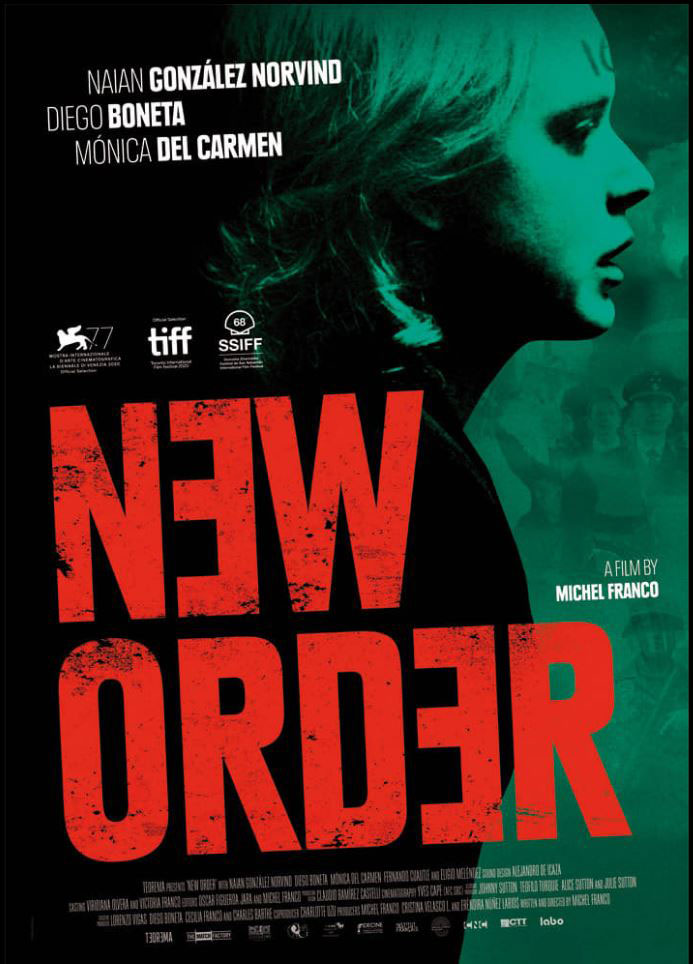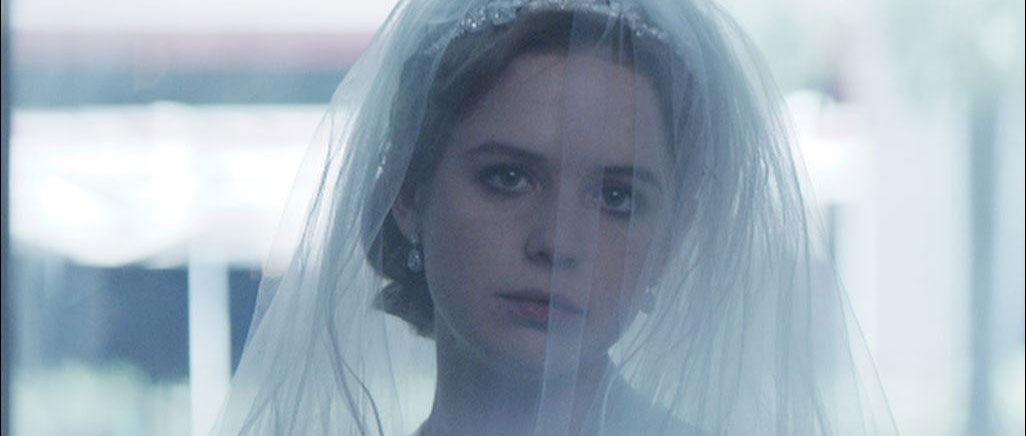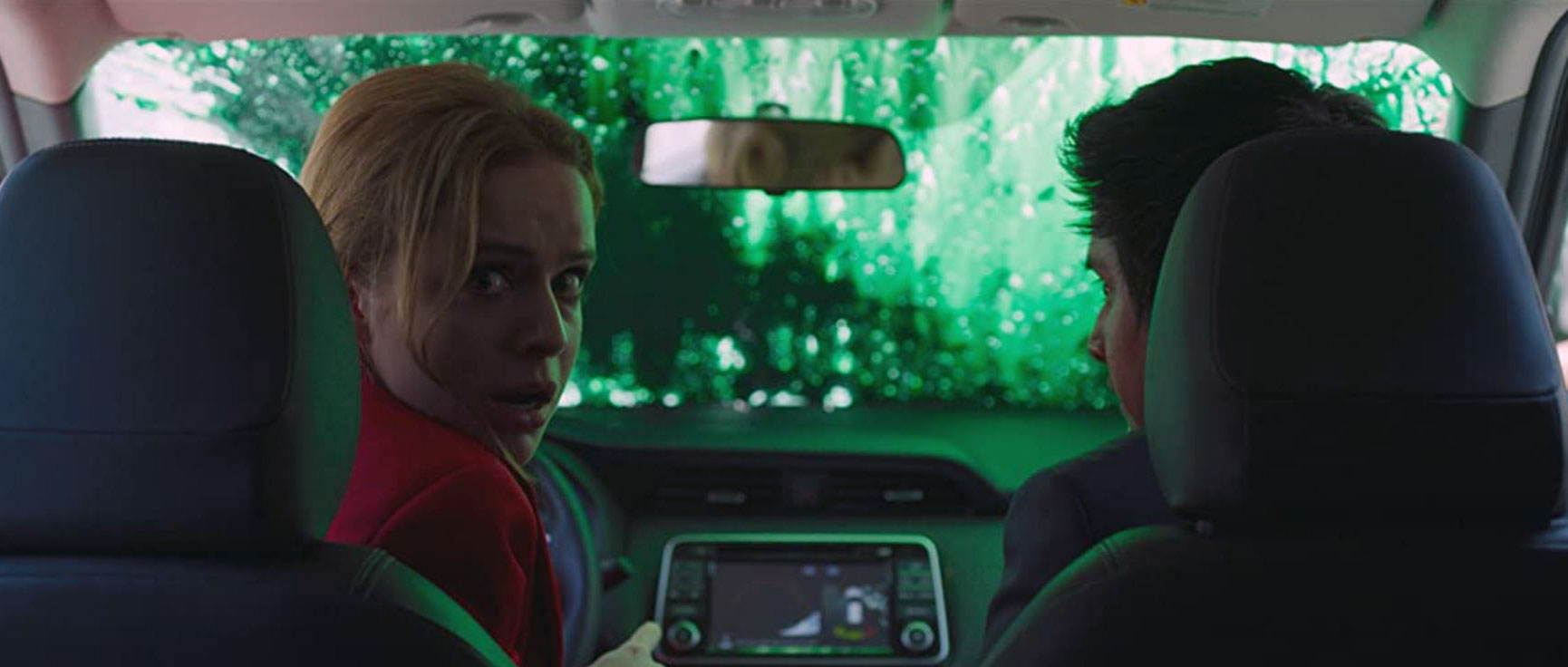
Director: Michel Franco
Writer: Michel Franco
Cast: Naian González Norvind, Fernando Cuautle, Mónica Del Carmen, Diego Boneta, Eligio Meléndez
Producers: Michel Franco, Eréndira Núñez Larios, Cristina Velasco
Music: Cormac Roth
Cinematography: Yves Cape
Editor: Óscar Figueroa, Michel Franco
Cert: 18
Running time: 88mins
Year: 2020

What’s the story: As an upper-class family celebrates their daughter’s marriage in Mexico City, civil unrest spills over the walls and into their mansion house.

What’s the verdict: Tim Roth’s healthcare worker in Chronic. Ana Valeria Becerril’s pregnant 17-year-old in April’s Daughter. Michel Franco makes movies about people quietly making sacrifices to get by.
The volume of New Order comes as a shock then, slamming audiences into their seats. A bleak but riveting tale of revolution and power, characters here do not make sacrifices but have sacrifices forced upon them.
Franco opens his movie with random, abstract images of unrest and violence. Green and red abound, be it green paint hurled in protest or red blood spattered across bodies.
These are also the colours of the Mexican flag, and this is as subtle as Franco gets in his vision of a nation about to explode. But New Order is an all-too recognisable reflection of current global turmoil, stunning the Venice Film Festival into awarding it the Grand Jury Prize.
After the striking opening, the writer/director leaves the unease to simmer. After a hospital is cleared to make space for injured protesters, the aged Rolando (Meléndez) is forced to take his gravely ill wife home.
He visits the opulent home of a past employer to borrow money for his wife’s private healthcare, but leaves with a fraction of what’s required. Appalled at her parent’s callousness, compassionate newlywed Marianne (Norvind) leaves her wedding party to drive his wife to hospital.
Lucky for her, as protesters then scale the walls of mum and dad’s house.
For those well-versed in zombie movies (by now everyone?), there is a grim humour in how Franco uses horror cinema tropes to escalate tension. Characters celebrate in the foreground, while military trucks pass behind them. Reports of violence are heard on car radios. One guest arrives injured, “bloodied” with green paint, which elsewhere emerges from a tap.

When the violence erupts it is swift and brutal, not discriminating in favour of apparently lead characters. Expectations that New Order will depict the 1% withstanding an invading horde while realising wealth discrepancy is a modern ill are decisively undercut.
Midway through Franco shifts attention to the uprising’s chaotic aftermath. The city is cut in two between an unscrupulous military elite eying a coup d’état and revolutionaries snatching wealthy hostages, including Marianne. Held for huge ransoms, these hostages are subjected to a Dantesque inferno of terror and brutality, frequently difficult to watch.
Trapped in the middle are Marianne’s driver Cristian (Cuautle) and his mother Marta (Del Carmen). Forced to act as go-betweens, they ferry ransom demands to Marianne’s privileged, distrustful brother Daniel (Boneta).
Franco and cinematographer Yves Cape take their visual style from the 24-hour news cycle. But New Order’s view of revolution carries none of the fiery idealism of the Occupy movement or Extinction Rebellion. Instead the film looks back to revolutions gone by, seeing power corrupt anyone it touches.
Keeping all this from being unwatchably grim is the ruthless efficiency with which Franco tells his (horror) story. At a brisk 88-minutes, events propel forward at an inexorable clip with scant regard for those cut down. Occasionally the director holds on an event, such as a single shot scene in which terrified women are interrogated by revolutionaries. But these moments prove just as harrowing.
Chanelling Cuaron’s Children of Men, Pasolini’s Salo and Haneke’s Happy Ending, New Order is a ferocious snapshot of the world five minutes into the future.
Rob Daniel
Twitter: rob_a_Daniel
iTunes Podcast: The Movie Robcast

Pingback: Electric Shadows' Top 10 Movies of 2021 revealed!
Pingback: FEATURE: My 2020 in Cinema